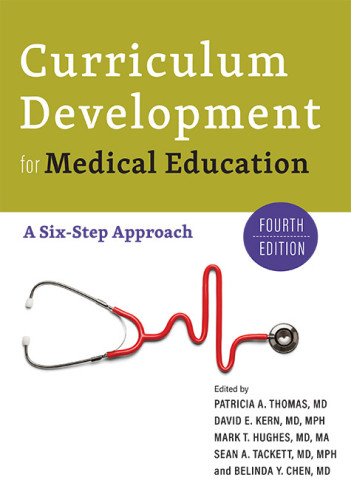
Reviews
This excellent educational guide is a concrete step-by-step approach to creating a rotation or curriculum in medical education.
Thoughtful, to the point, and an excellent primer for faculty members who find a curriculum development project in their duties and responsibilities.
Book Details
Preface
List of Contributors
Introduction
Patricia A. Thomas and David E. Kern
One. Overview: A Six-Step Approach to Curriculum Development
David E. Kern
Two. Step 1: Problem Identification and General
Preface
List of Contributors
Introduction
Patricia A. Thomas and David E. Kern
One. Overview: A Six-Step Approach to Curriculum Development
David E. Kern
Two. Step 1: Problem Identification and General Needs Assessment
Belinda Y. Chen
Three. Step 2: Targeted Needs Assessment
Mark T. Hughes
Four. Step 3: Goals and Objectives
Patricia A. Thomas
Five. Step 4: Educational Strategies
Sean A. Tackett and Chadia N. Abras
Six. Step 5: Implementation
Mark T. Hughes
Seven. Step 6: Evaluation and Feedback
Brenessa M. Lindeman, David E. Kern, and Pamela A. Lipsett
Eight. Curriculum Maintenance and Enhancement
David E. Kern and Patricia A. Thomas
Nine. Dissemination
David E. Kern and Sean A. Tackett
Ten. Curriculum Development for Larger Programs
Patricia A. Thomas and David E. Kern
Eleven. Curricula That Address Community Needs and Health Equity
Heidi L. Gullett, Mamta K. Singh, and Patricia A. Thomas
Appendix A. Example Curricula
Topics in Interdisciplinary Medicine: High-Value Health Care
Amit K. Pahwa
Neurology Graduate Training Program in Zambia
Deanna Saylor
The Kennedy Krieger Curriculum: Equipping Frontline Clinicians to Improve Care for Children with Behavioral, Emotional, and Developmental Disorders
Mary L. O'Connor Leppert
Appendix B. Curricular, Faculty Development, and Funding Resources
Patricia A. Thomas and David E. Kern
Index




